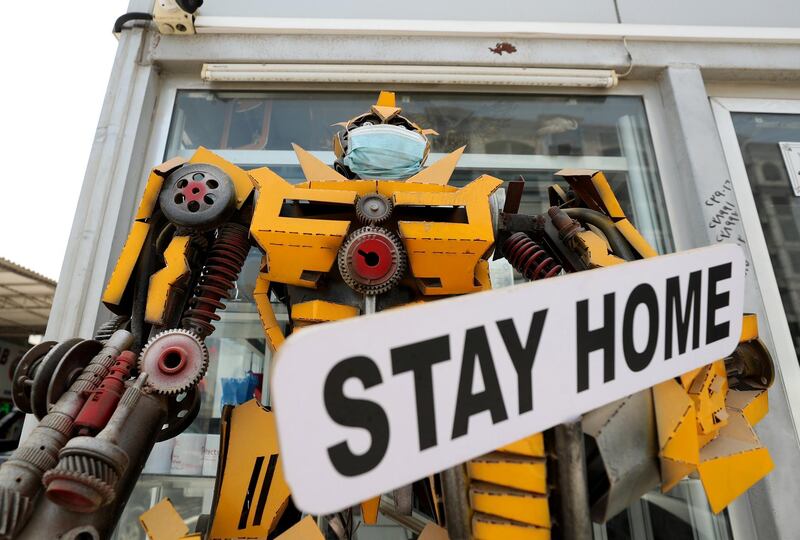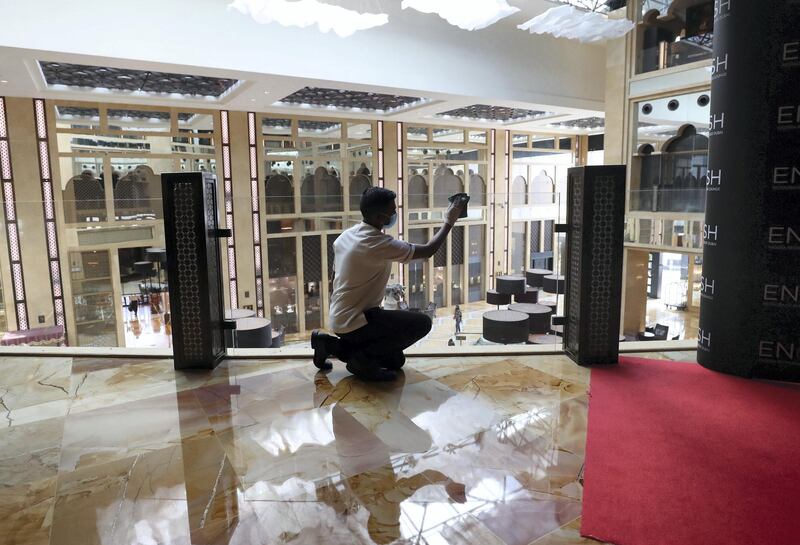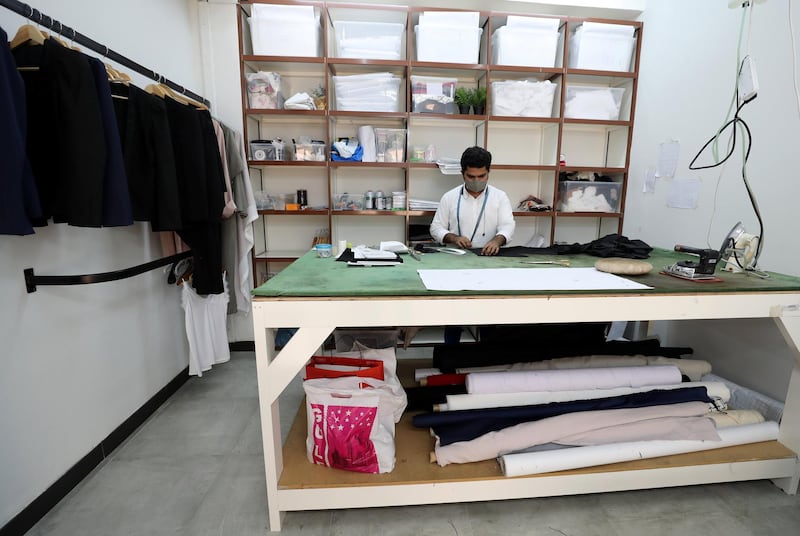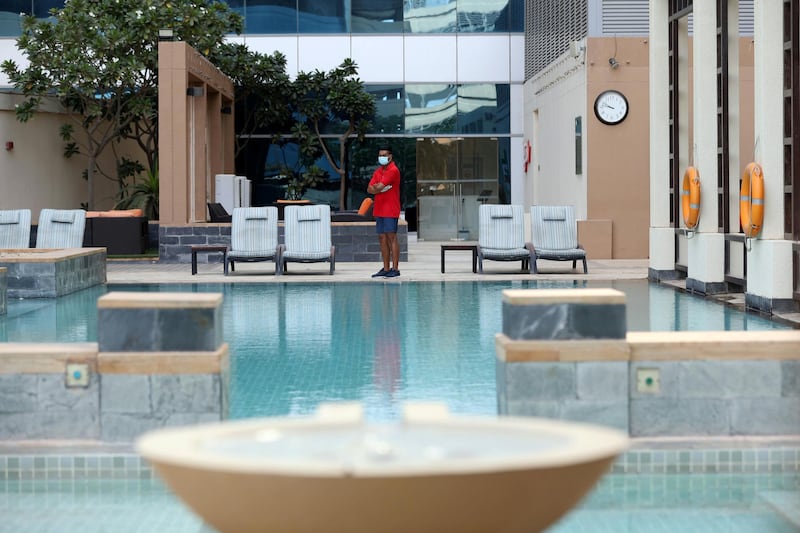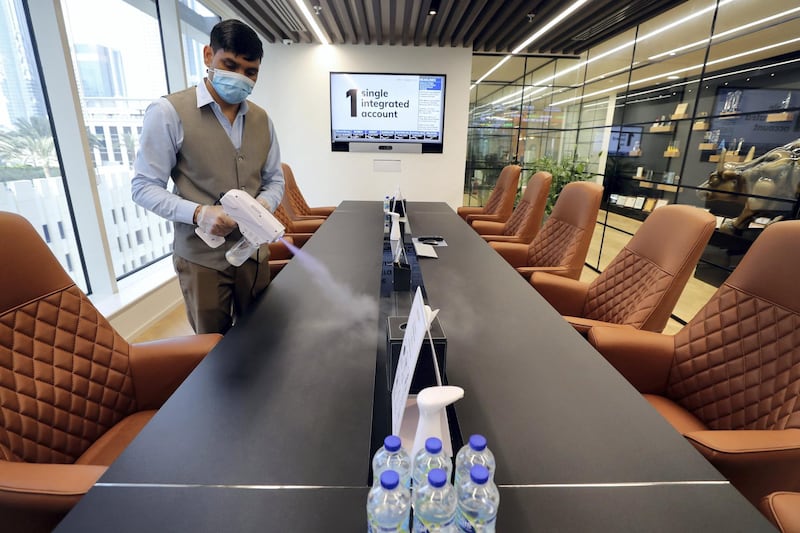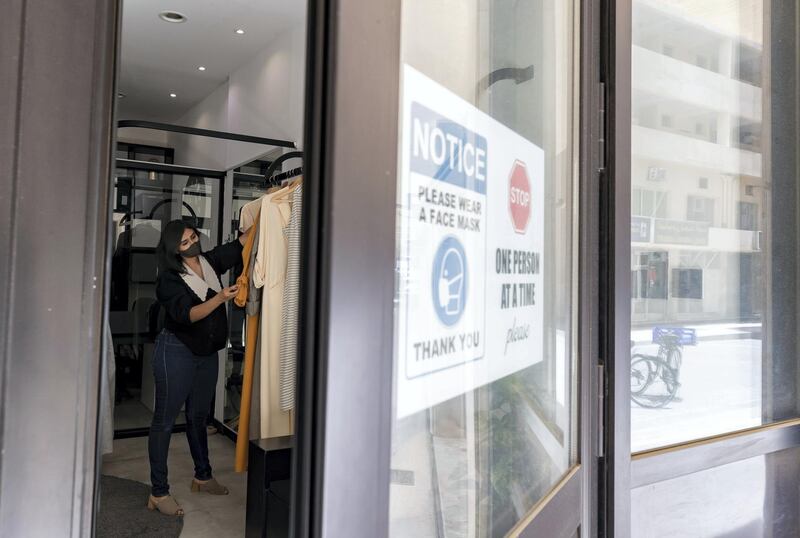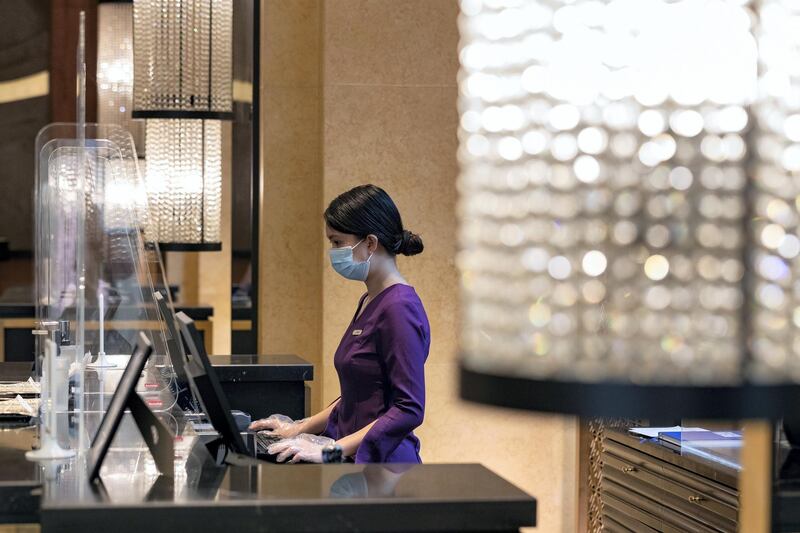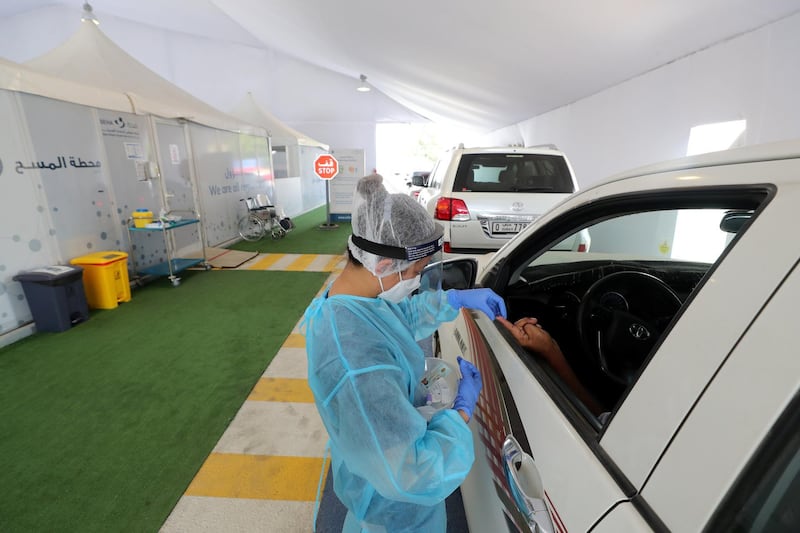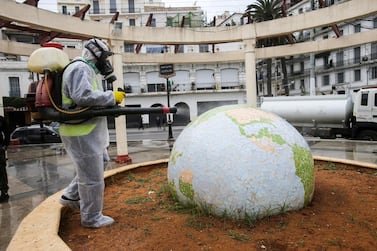New saliva tests to detect Covid-19 will be easier for children who may baulk at invasive nasal swabs, a researcher in Dubai said.
This week, researchers at Mohammed bin Rashid University of Medicine and Health Sciences said saliva testing was as accurate as the nasal swab used to detect Sars-CoV-2.
Their study was published in the peer-reviewed journal Infection and Drug Resistance.
Dr Tom Loney, associate professor of public health and epidemiology at the university, and who was part of the study, said the test could help to put children at ease when they have to be tested.
"Many countries are looking for rapid diagnostic tests that are less invasive and, for molecular testing, saliva is an alternative specimen to a nasal swab," Dr Loney told The National.
“I am hopeful it will become common practice and I think it will be preferable to a special population such as children and others who might find the nasal swab irritating.”
The UAE research is the first of its kind to study saliva samples taken from the general public, he said.
Researchers took saliva and nasal swabs from 401 adults who visited Al Khawaneej Health Centre for a Covid-19 test.
The samples were studied at Unilabs Dubai and 50 per cent of those tested were asymptomatic.
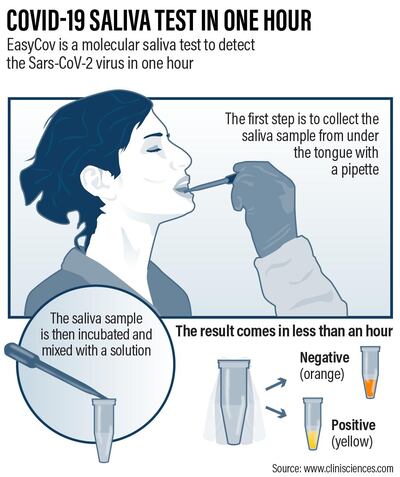
“There have been a few previous studies that used the saliva of hospitalised cases, so they were more severe cases,” Dr Loney said.
“Our study looked at population-based screening in a community setting where half of the population was asymptomatic.
“The results show there is good diagnostic accuracy to screen people who might not have had any symptoms.
"We collect neat saliva in a sterile container without any viral transport media.”
Transport media are containers such as vials designed to preserve the viability of viruses or bacteria while they are being moved without letting them multiply.
All the new tests require is that a patient spits into a cup.
“If the sample is sent to a lab and analysed within three hours, this may be a viable opportunity to use saliva sampling,” Dr Loney said.
“There are some benefits of a saliva test. It is non-invasive, can be self-collected and doesn’t require trained healthcare professionals.
“For us at Mohammed bin Rashid University, this was a nice project for connecting the public and private healthcare industry with academia and for all of us working together to generate new knowledge and new evidence that we hope may be used in policy.”
The two basic measures of a test’s accuracy are sensitivity and specificity.
The study showed that saliva can be used for viral detection with 70 per cent sensitivity and 95 per cent specificity, making it as accurate as the commonly used nasal swabs.
“Our studies show that testing saliva as a specimen has the same or similar diagnostic accuracy as using a nasopharyngeal swab,” Dr Loney said.
“The sensitivity test is essentially what we call a true positive rate, which is the ability to correctly identify someone with Sars-CoV-2.
“And the specificity rate is the true negative rate, which is the ability to identify someone who doesn’t have the virus.
“It is now for the policymakers to discuss the cost and practical implications of upscaling saliva sampling and whether there are benefits of doing that at a population level over nasal swab.”
The research team from the university was joined by teams from Dubai Health Authority, Unilabs, Cleveland Clinic Abu Dhabi, NYU Abu Dhabi and the National Reference Laboratory.
The study was one of the first research projects to receive approval from the Emirates Institutional Review Board for Covid-19 research.
